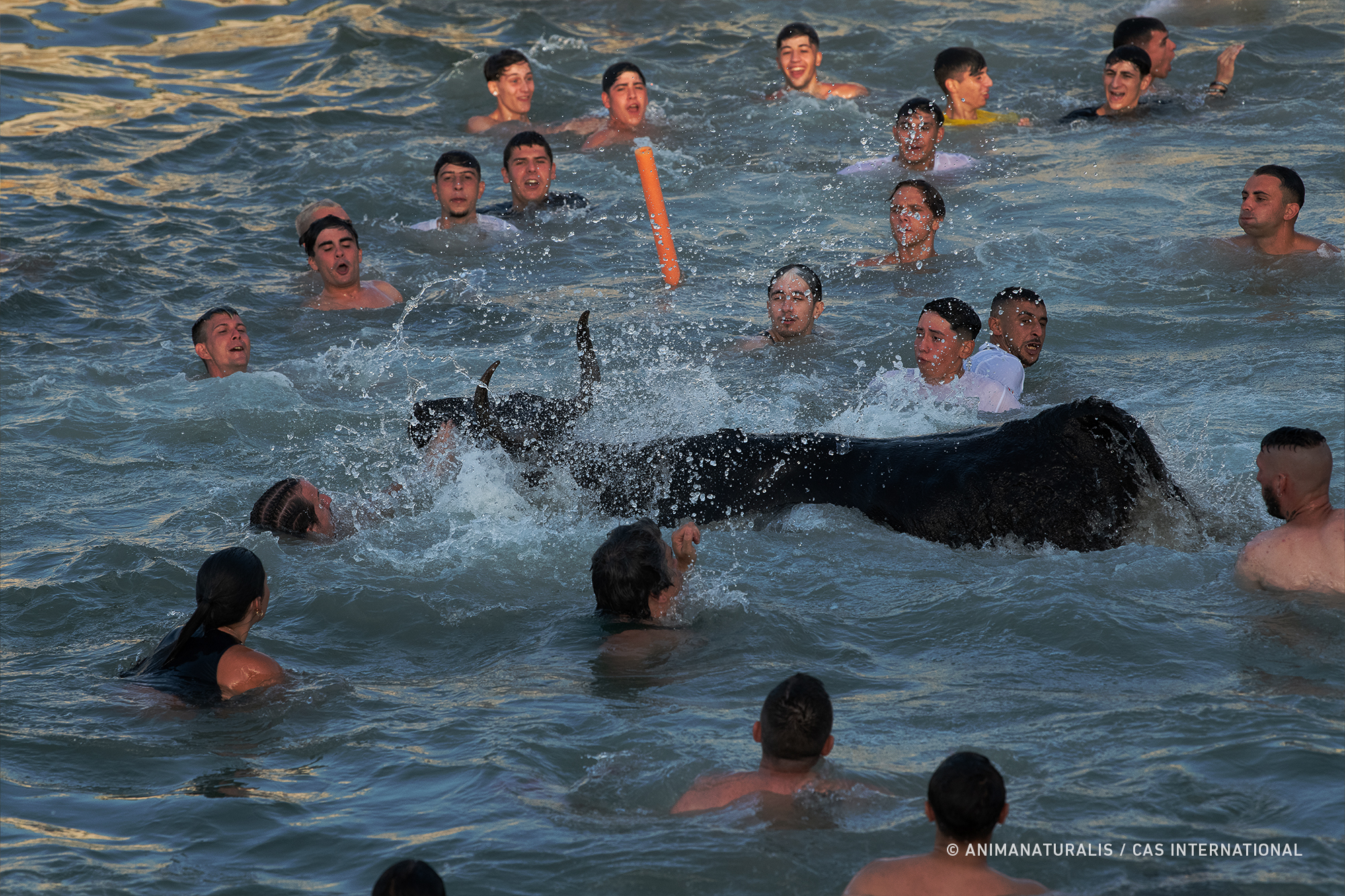The recent plenary session of the Dénia City Council, where the Popular Party (PP) motion to "revitalize" the bous a la mar was discussed, has reignited the debate between bullfighting supporters and those advocating for animal protection. While the PP insists that these activities are part of the city's cultural heritage, critics argue that preserving traditions cannot be an excuse to perpetuate violence against animals.
The local government, made up of the PSPV and Compromís, highlighted the need to "adapt" the festivities to today’s reality, noting that times have changed and social sensibilities toward animals have evolved. “Today's reality is not the same as 30 years ago,” explained the Councilor of Festivities, Raúl García de la Reina, referencing the declaration of the bous a la mar as a Festival of National Tourist Interest in 1993.
However, anti-bullfighting voices were quick to respond. As the councilors debated in the plenary session, the shouts of protesters demonstrating in the square echoed inside the hall, reminding everyone that for many, what some see as tradition, others perceive as torture.
Animal suffering as the true protagonist
The bous a la mar, which consist of forcing bulls to run toward the sea, are presented as a picturesque tourist activity. But behind the apparent fun, there is hidden animal suffering. The bulls are forced to run and jump into the water, causing them extreme stress, as they don’t understand why they are being harassed or what fate awaits them. Although some claim that the animals suffer no direct physical harm, the psychological impact and exhaustion they endure during the event are undeniable.
Various scientific studies have shown that animals experience fear and stress in situations of pursuit. A report by the Spanish College of Veterinarians indicates that bulls subjected to this type of practice show high levels of cortisol, a hormone related to extreme stress. Furthermore, forcing them into the water, a non-native environment for them, poses an additional risk to their well-being.
Aïda Gascón, director of AnimaNaturalis in Spain, puts it plainly: "The bous a la mar are nothing more than an example of the trivialization of animal suffering in the name of entertainment. We cannot continue to justify these kinds of spectacles simply because they are rooted in the culture of some towns. Tradition is not synonymous with morality."
The final vote at the Dénia plenary rejected the PP’s motion, making it clear that, for now, there are no intentions to promote, revitalize, or eliminate the bous a la mar. However, the reduction in sessions during this year’s festivities and the growing social pressure from animal rights organizations and citizens committed to protecting animal rights indicate that the debate is far from over.
Necesitamos tu apoyo
AnimaNaturalis existe porque miles de millones de animales sufren en manos humanas. Porque esos animales necesitan soluciones. Porque merecen que alguien alce la voz por ellos. Porque los animales necesitan cambios. Porque en AnimaNaturalis queremos construir un mundo más justo para todos.
Las donaciones puntuales y periódicas de nuestros socios y socias son la principal fuente de nuestros fondos.


